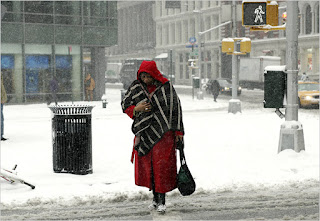
Chris Anderson, editor of Wired Magazine and author of The Long Tail, lays out the case for
why everything on the web will ultimately be offered for free. In a nutshell, he says the costs of computing, storage and bandwidth are dropping to the point of being negligible, which makes the incremental cost of any product or service offered online effectively zero. This, combined with the 3-way transaction model exemplified by paid advertising, will give consumers the ultimate five finger discount.
Sounds nice. And the economic case is compelling. But in my mind the most important point comes in this passage:
"From the consumer's perspective, though, there is a huge difference between cheap and free. Give a product away and it can go viral. Charge a single cent for it and you're in an entirely different business, one of clawing and scratching for every customer. The psychology of "free" is powerful indeed, as any marketer will tell you."
This marketing issue seems like a more important factor than dropping costs. Sometimes price is determined by cost of production plus a margin, but just as often it's determined by what the consumer is willing to pay. So even if your costs are zero, you'll still charge if someone is willing to pay for what you're selling. The big difference with free is that people don't need to think about it as a value proposition at all. So as a seller you need to do very little convincing.
The big bonus of free that Anderson doesn't talk about is elimination of the need for a payment mechanism. Despite all the internet's advances in the last few years, buying something online is still a huge pain in the ass. But as soon as you can get something to somebody online for free, the hassle of credit cards and paypals and whatever else goes away.
 So this is pretty cool: Guy gets his PhD in Physics. Guy likes to surf. So guy takes odd jobs after finishing his PhD, lives in Maui where he can surf, and works on Physics on his own. Guy publishes new theory of how the universe works on a wiki. Now guy is the keynote speaker at the TED Conference in Monterey.
So this is pretty cool: Guy gets his PhD in Physics. Guy likes to surf. So guy takes odd jobs after finishing his PhD, lives in Maui where he can surf, and works on Physics on his own. Guy publishes new theory of how the universe works on a wiki. Now guy is the keynote speaker at the TED Conference in Monterey.






.jpg)







